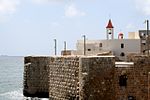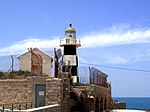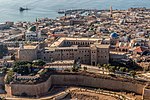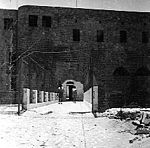Khan al-Umdan
1784 establishments in Ottoman SyriaBuildings and structures in Acre, IsraelBuildings and structures of the Ottoman EmpireCaravanserais in IsraelClock towers in Israel ... and 4 more
Commercial buildings completed in 1784Ottoman clock towersTourist attractions in Northern District (Israel)World Heritage Sites in Israel
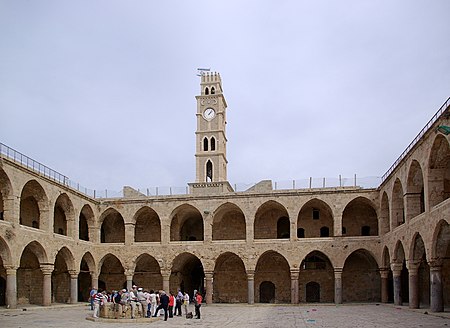
Khan al-Umdan (Arabic: خان العمدان: "Caravanserai of the Pillars" or "Inn of the Columns", also known as Khán-i-ʻAvámid) is the largest and best preserved caravanserai in Acre, Israel. Located in the Old City of Acre, it is one of the prominent projects constructed during the rule of Ahmed Jezzar Pasha in Galilee, under the Ottoman era.
Excerpt from the Wikipedia article Khan al-Umdan (License: CC BY-SA 3.0, Authors, Images).Khan al-Umdan
Sha'ar Nikanor, Acre
Geographical coordinates (GPS) Address Nearby Places Show on map
Geographical coordinates (GPS)
| Latitude | Longitude |
|---|---|
| N 32.919925 ° | E 35.069047222222 ° |
Address
לאופולד השני
Sha'ar Nikanor
2451308 Acre
North District, Israel
Open on Google Maps

